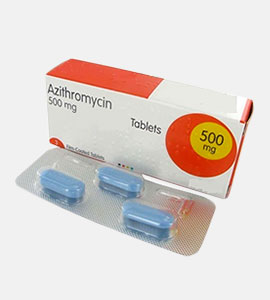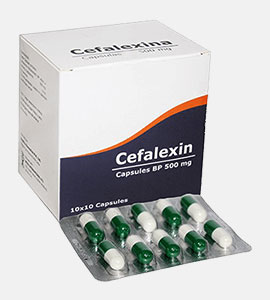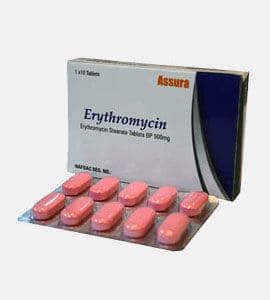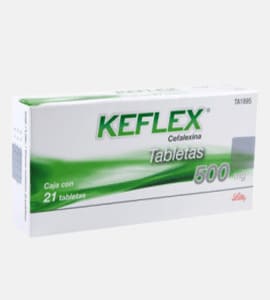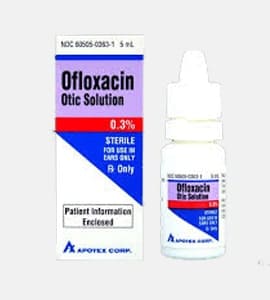Common Use
It is a broad-spectrum antibiotic that destroys bacteria. It is active against many aerobic (those developing in the presence of oxygen) and anaerobic (those developing in the absence of oxygen) gram-positive and aerobic gram-negative microorganisms, including strains that produce beta-lactamase (the enzyme that destroys penicillin). Clavulanate potassium, comprised in the content of this medication, provides resistance of Augmentin to the activity of bacterial beta-lactamases. This medication is used to treat pneumonia and other infectious diseases of the respiratory, gastrointestinal, and urogenital systems, infections which appear after surgery, and others.
Dosage and Directions
Doses are administered individually depending on your condition, localization of infection, and susceptibility of the pathogen. Do not take it in larger amounts or for longer than recommended. Swallow the whole tablet. If it is the Augmentin Chewable tablet, then chew it before swallowing. Augmentin should be taken at evenly spaced intervals.
Precautions
Do not use if you are allergic to any other penicillin antibiotic, have liver or kidney failure, or mononucleosis.
Contraindications
Do not use the medicine if you have an allergy to its components or other penicillin antibiotics, have infectious mononucleosis, or have a history of liver problems or yellowing of the eyes or skin caused by Augmentin.
Possible Side Effects
Dyspepsia, abdominal discomfort, bloating, gas, nausea, vomiting, liver function disorders, hepatitis, jaundice caused by stagnation of bile, vaginal itching, and also symptoms of allergy (hives, rash, swelling). Caution should be exercised in patients with liver failure. The medication is not recommended for pregnant (especially third trimester) and breastfeeding women.
Drug Interaction
Treatment with Augmentin and other antibiotics can change the normal bacteria flora of the colon and permit overgrowth of C. difficile, a bacteria that causes pseudomembranous colitis. Probenecid, which is used to treat gout, may slow the excretion of Augmentin by the kidneys and result in an increase in its toxicity.
Missed Dose
If you missed a dose, take it as soon as you remember, but not if it is almost time for the next intake by your schedule. If so, skip the missed dose. Do not try to compensate for a missed dose by taking an extra one.
Overdose
If you suppose that you took too much of Augmentin and experience symptoms such as nausea, vomiting, stomach pain, diarrhea, skin rash, drowsiness, or hyperactivity, seek immediate medical help.
Storage
Store at room temperature of 59-86F (15-30C) away from light and moisture.


 English
English
 Italiano
Italiano
 Français
Français
 Deutsch
Deutsch
 العربية
العربية
 Čeština
Čeština
 Español
Español
 EUR
EUR


